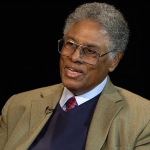 Working comprises the bulk of most people’s adult lives. Unfortunately, many people find their work unfulfilling and dread Monday mornings. How can we find meaning and a sense of vocation in even the most mundane work environments?
Working comprises the bulk of most people’s adult lives. Unfortunately, many people find their work unfulfilling and dread Monday mornings. How can we find meaning and a sense of vocation in even the most mundane work environments?
In a recent article in The Atlantic, Uri Friedman presents seven helpful pieces of advice given by David Brooks (New York Times columnist) and Arthur Brooks (president of the American Enterprise Institute) in order to shed light on how people can better view their job and find purpose. The difference between attitudes of boredom and laziness versus those of enthusiasm and productivity boils down to one’s motivation to work.
Do you work for the paycheck alone? Or do you view your work as contributing to the service of others?
I found one point especially helpful. Friedman narrates a story:
Arthur Brooks set out on a career as a French horn player. But then he came across Johann Sebastian Bach’s answer to why he’d become a composer: “The aim and final end of all music is nothing less than the glorification of God and the enjoyment of man.” Brooks gradually decided that he could better serve such aims as an economist, with a focus on improving the lives of the poor, than as a musician.
“The happiest people feel like they’re needed,” Brooks said. “The greatest engine of misery in our society is a sense of social and economic superfluousness”—a sense, he added, that is contributing to the anger on display in U.S. politics today.
This story does not just relate to those who have decided to pursue a new career, but also those in seemingly menial careers. Friedman quotes David Brooks, who said, “There is no income level at which people are not desperate for meaning.” Lester DeKoster’s book Work: The Meaning of Your Life helps to uproot feelings of hopelessness in menial workplaces and unpacks this idea of meaningful service in each chapter. DeKoster returns repeatedly to one succinct facet of work:
Work gives meaning to life because work is the form in which we make ourselves useful to others.” In the first chapter he explains just how practically this is fulfilled every day. Civilization is made up of “countless workers, just like ourselves-including ourselves-whose work creates the harvest that provides each of us with far more than we could ever provide for ourselves.
Just as Christ came to serve the sick (the sinful!) so we are called to serve our brothers — even through tasks which seem small. The chair you are sitting on, the roof over your head, and the computer on which you are reading this have served you, and your purchasing these goods and services has helped put dinner on someone’s table.
Being made in the image of God, we have the capacity — and the mandate — to use our talents creatively for God’s glory. Gene Edward Veith, professor of literature at Patrick Henry College, writes in his article “Authority in Vocation” of Martin Luther’s understanding of work. Luther greatly contributed to the theology of vocation:
Luther called vocation a “mask of God.” He said that God milks the cows by means of the milkmaid. We see a menial worker and may even be so presumptuous to look down upon her, but behind that humble façade looms God Himself, providing milk for His children.
All vocations are equal to God. Each line of work which helps to weave the threads of civilization together speaks of a God who delegates distinct gifts to his children, whether it be in a factory, a cubicle, or one’s home.
The act of working is never without meaning. It is through working that we use talents and the use of God’s gifts proclaims of a maker who fashioned each person so he may serve his neighbor, and ultimately Christ. In all lines of work which serve civilization there is an opportunity for each to bear witness to Christ’s artistry.
Originally published at the Acton PowerBlog
Photo credit: Alexander Affleck











